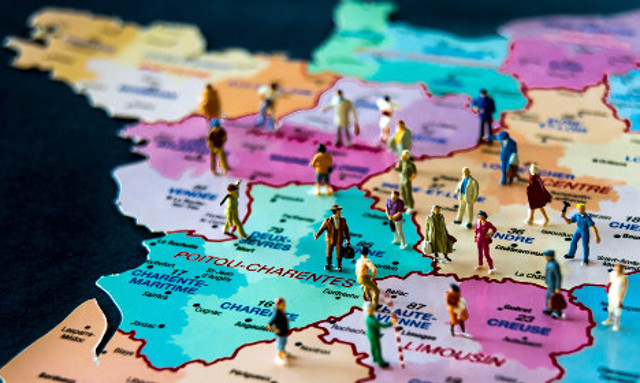You might think you have French down but when you're travelling to new parts of this wonderfully diverse country, you're likely to come across some words and phrases that you don't normally hear everyday.
That's right, even if your grammar is perfect and your vocabulary is yet to fail you, with Celtic, German and Spanish just some of the languages that have influenced phrases in common use in regions of France, you could still find yourself at a loss for words.
Here are ten that will make life easier on your travels:
Pain au chocolat, chocolatine or petit pain?
Something you'll definitely want to get a handle on when travelling around France is the right word for “pain au chocolat”.
While most people are familiar with the most commonly used name for the delicious breakfast pastry, it goes by a different title in the south west of the country where it's known as a “chocolatine” and it even has a third name in the north of France where people will order a “petit pain” with their morning coffee.

Daniel Chow/Flickr
“Are you fishing for mussels?”
If you're in Brittany and someone asks if you're going to fish for mussels (Tu vas a la peche aux moules?), it's not because you look like a person who can't get enough of shellfish but instead because they think your trousers are too short.

Fishing for mussels? U.S. Fish and Wildlife Service Southeast Region/Twitter
G**t!
In Brittany, as well as hearing the much-loved expletive “Putain!” you'll also hear “Gast!” which means the same thing in Breton.
Adieu = …Salut?
The next one is likely to have confused a few of our readers. In provençal “Adieu”, normally meaning “goodbye”, can be used to mean “hello”.
We just wonder how many people thought they were being rudely rejected from restaurants by otherwise smiling waiting staff…
Say cheers with a schlouk!
Here's one for if you're celebrating in the eastern Alsace area on France's German border. Having a “schlouk” means a swallow or mouthful.
So if someone's encouraging you to join them for a “schlouk” of beer rather than a “gorgée” like elsewhere in France, now you'll know what they mean.

Peg93/Wikicommons
Are you a pélo?
For men spending time in Lyon, you'll find that instead of being one of the “mecs” (lads), instead you're a “pélo”. The word is used pretty much exclusively in Lyon and the area surrounding the city.
Or perhaps a gripette?
While for the women out there, being called a “gripette” isn't something you'll want to hear.
If you heard this word in the far north of France where they speak Ch'ti, they're calling you a mean woman (or a “méchante femme” in the rest of France).
Also listen out for the word “balou” meaning “idiot”.

“Mean, me?” Cruella de Ville. Joe Busby/Flicker
Meanwhile, in Corsica…
In Corsica, you're likely to be asked at some point “Babin?”, which when framed as a question just means “How are you?” (normally “ça va?” in French).
Goofing around
In the northern Pas-de-Calais area if you're being silly you won't be told to “Arretez de faire des betises” like elsewhere in France, instead you'll hear “Arretez de faire des cacoulles”.
Moon!
In Lorraine as an anglophone hearing people use the expression “Mooooon!” is likely to cause you some surprise. Luckily you won't be the only one — it means the person using it is surprised too.

Public Domain/Wikicommons




 Please whitelist us to continue reading.
Please whitelist us to continue reading.